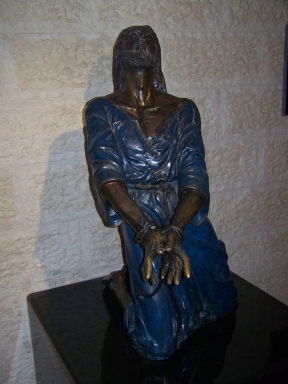Jesus has begun his teachings on the kingdom of God. He focused on our attitudes and actions (vs. 3-12) and on our impact in the world (vs. 13-16). Yet, so far, not once has Jesus mentioned the law, or keeping the law, or even the interpretation of the law.
He wants to be clear that he is not attacking or abolishing what has come before; in fact, he is fulfilling it. Taken together, the “Law” and the “Prophets” represent the whole of the Old Testament. The meaning of the Old Testament is completely fulfilled in Jesus – Scripture has Jesus as its core, pointing to him. Jesus’ teaching deepens the meaning of the law, revealing a deeper ethical standard. Jesus’ actions reveal in a greater way the prophetic teachings.
We must also remember that Jesus’ death on the cross also fulfilled the law. We see in the cross the penalty for breaking the law; we see Jesus bearing the penalty for all who are saved. The law teaches and trains us, but it also points out the worthlessness of our own efforts to gain righteousness before God. “In him we have redemption through his blood, the forgiveness of our trespasses, according to the riches of his grace.” (Ephesians 1:7 ESV)

